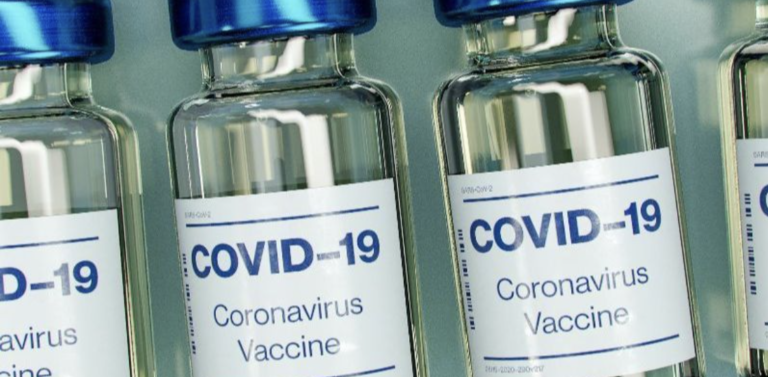Personal Account by Dr. Oliver Freudenreich, MD: On Joining the Herd
My turn to get vaccinated finally came on a Thursday in early January.
As a psychiatrist at MGH working with patients with serious mental illnesses, I had provided in-person care throughout the pandemic, with anxiety about getting infected myself mostly in the beginning when we were still sorting out infection control measures. Waiting for my turn to receive the vaccine had been stressful again. After making it through the pandemic without getting sick, I didn’t want to contract COVID on the home stretch.
At the designated time, I showed up at an old hospital wing at MGH that had been converted to the hospital’s vaccination area. A late afternoon, the hospital was quiet and there was no check-in line, only people already getting their shots at the spaced desks in the large main room.
“Step back, please,” the woman at the front desk of the vaccine clinic admonished me when I eagerly approached her to show my hospital ID. A hand gesture, no eye contact needed, her message was clear. Social distancing rules still applied. I mumbled an apology, annoyed with myself to make such a beginner’s mistake. After living one year in a pandemic, I should have noted the obvious markings on the ground that were put in place to organize the vaccine crowd. Then she checked me in.
A volunteer directed me to an empty vaccine station where I sat down and rolled up my sleeve, acknowledging verbally that I wanted the vaccine and that I had no allergies. The nurse who gave me the shot was friendly and efficient, and filled out my small vaccine card with the CDC logo on it. I was pleased to get some official-looking card, thinking this may come in handy for eventual travel again. I found the observation area where all furniture had been removed except for socially distanced chairs. For 15 minutes, I sat silently with a random group of fellow healthcare workers, brought together by fate just once, never to meet again, until my observation period was over, and I could slip out. The cold wind from the Charles River hit my face, my long COVID hair offering some protection. 30 minutes that changed my life.

“…The nurse who gave me the shot was friendly and efficient…30 minutes that changed my life…”
I was relieved, “you will make it through the pandemic now.” I was proud that I had gotten the vaccine developed by a local company from Cambridge, just across the Longfellow, a 20-minute walk from MGH. I was grateful for our leaders who were setting up vaccination sites across the Commonwealth; grateful for Operation Warp speed (great term, based on Star Trek!) and the thousands of dedicated people who conducted the clinical trials and brave clinical trials volunteers who gave the vaccine a shot when the risk was unknown.
But most importantly: getting the vaccine brought me hope that our lives would be more than survival mode. “Survival is insufficient,” as a phrase goes (Star Trek again!). Meeting friends, going out after work, seeing my aging parents in Germany: these were the things I missed by “only surviving”,
I returned to the vaccine area 4 weeks later for my second shot, this time paying attention to the markings on the floor. Lesson learned.
As we have passed the one-year anniversary of “Shut down” as the Boston Globe had put it in large, black font on March 11, I hope that enough people agree to a vaccination, so we reach herd immunity. I hope that we show solidarity with countries that need help. I am realistic that the pandemic will not be over until many more people are vaccinated, in a race against viral mutations towards herd immunity. (The word herd immunity stems from animals who huddle around their little ones to collectively protect them from predators.)
I had joined the herd that is getting bigger every day. It felt good.

Oliver Freudenreich, MD, FACLP
MGH Schizophrenia Clinical &
Research Program
https://www.massgeneral.org/psychiatry/schizophrenia